Almost a decade ago, impresario Song Jianping came up with the unconventional idea that modern-day shopping malls could help save classical music performances.
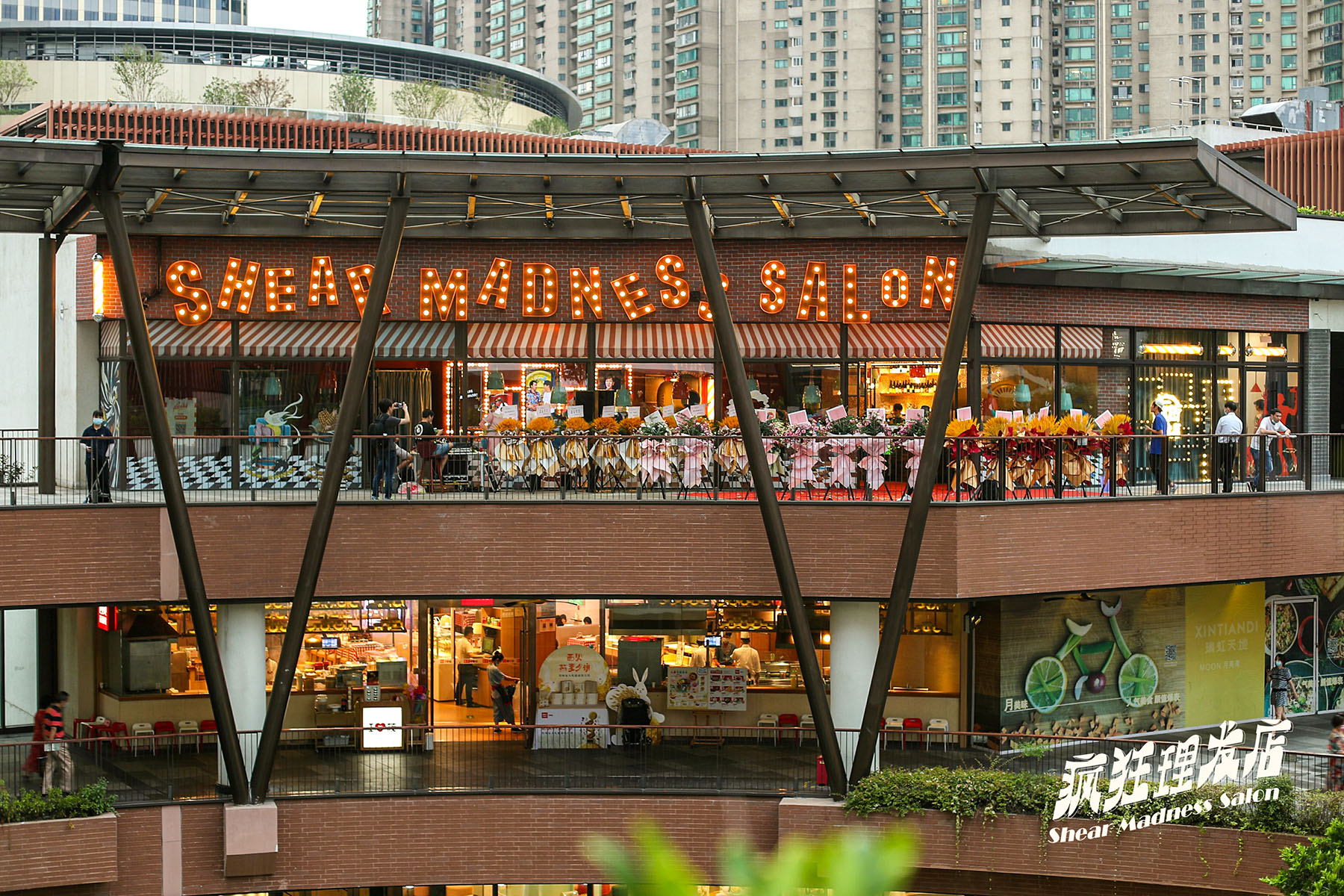
A show organizer friend of his who had just returned from a trip to Europe in 2015 to study the staging of classical music concerts told him most of the audiences at the performances were elderly people. "There is no hope for classical music," Song's friend declared.
Song, 43, is founder and chairman of Music Fans, a Beijing-headquartered company that has organized 5,000 performances around the country for more than a decade. His friend's bleak prognosis for classical music concerts inspired the mall idea.
We want to live in the moment and to have some fun. Going to theaters, just like going to the cinema and to the gym, helps us relieve some pressure from our daily lives and work.
Pan Peng, gallery assistant
"Why not bring concerts closer to people, especially young people, which allows them to enjoy classical music more easily and comfortably?" Song said, noting that malls had the added attractions of grocery stores, fashion brands, cinemas, coffee shops and children's play areas.
When he started his company in 2012, Song focused on classical music concerts, featuring soloists, orchestras and chamber music performers. Like many companies that put on live performances, he incurred the costs of renting spaces, the majority traditional theaters with a capacity of about 1,000 seats.
READ MORE: A celebration of civilizations
From 2012 to 2015, some of the shows that his company staged didn't sell very well, Song conceded. He had also started to realize that going to a classical music concert at a theater was not very appealing to many patrons, especially young people, who have a fast-paced lifestyle and need the convenience of restaurants and easy access to transportation.
On Dec 24, 2019, the company launched its first performance at Taikoo Li Sanlitun, a shopping complex in downtown Beijing.
The concert featured cello player Zhao Xuyang and pianist Liu Yuntian performing Beethoven's complete cello sonatas. Ticket prices ranged from 100 to 380 yuan ($14 to $53), and to Song's surprise the concert sold out.
In 2022, the company opened its second performance space in the commercial area of Land Port City in Changying, eastern Beijing.
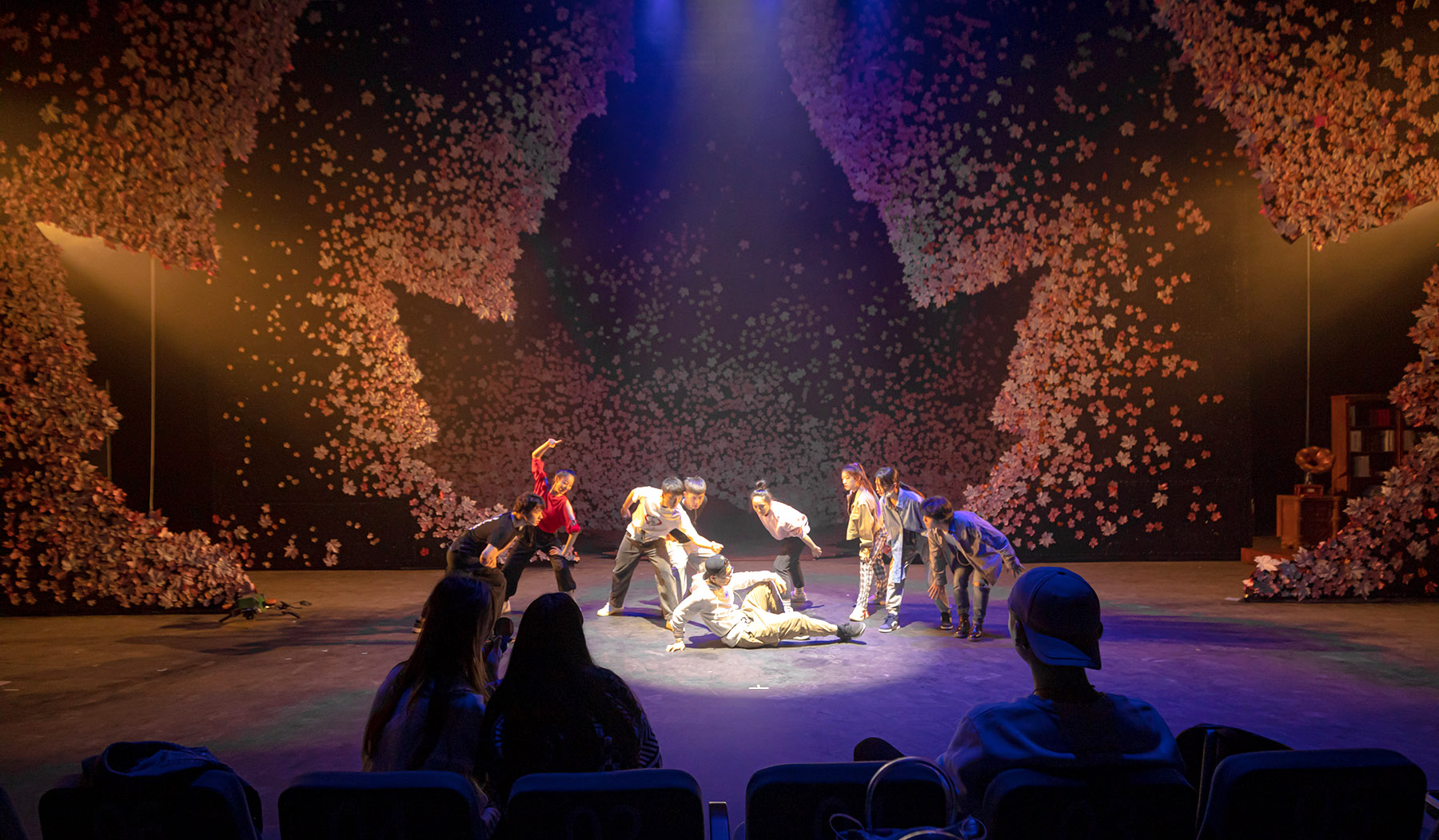
The average capacity at the two performance spaces, each having four theaters, is around 200 seats. Live performances are staged almost every week from Friday to Sunday.
The company has diversified its musical programs to also cater to patrons who have never attended a classical music performance.
Concerts have featured musical works adapted from popular movie soundtracks, such as compositions by Japanese composer Joe Hisaishi for the anime director Hayao Miyazaki.
On Saturday, a new performance space will be launched at the Wukesong Wanda Plaza, after months of trial runs. Song said the venue is much bigger than the other two, with a capacity of 500 seats. Dramas, musicals and classical music concerts will be staged there.
The two performance spaces in Sanlitun and Changying have also staged dramas and contemporary music shows such as pop and rock to appeal to broader audiences.
"When people go to shopping malls to enjoy a live performance, they expect to have an experience beyond what they can get from traditional theaters," said Wen Juan, general manager of productions and theater at Mahua Fun Age, a leading Chinese comedy production company.
"At the same time, shopping malls have become more than just places to shop — they're a lifestyle."
The company, known as Kaixin Mahua in Chinese, was founded in 2003 and soon gained a large fan base with its popular theater productions of comedies such as Goodbye Mr Loser and The Count of Wulong Mountain.
Mahua Fun Age has never stopped exploring new business opportunities, Wen said.
In August 2020, it opened its first performance venue in a commercial building at Shanghai Nanxiang Incity Mega, the city's largest single-structure shopping mall located in Jiading district.
So far, the company has opened more than 40 performance venues in commercial areas at home and abroad, and staged performances in over 120 Chinese cities including Beijing, Shanghai, Tianjin, Shenzhen, Guangdong province, and Chengdu, Sichuan province.
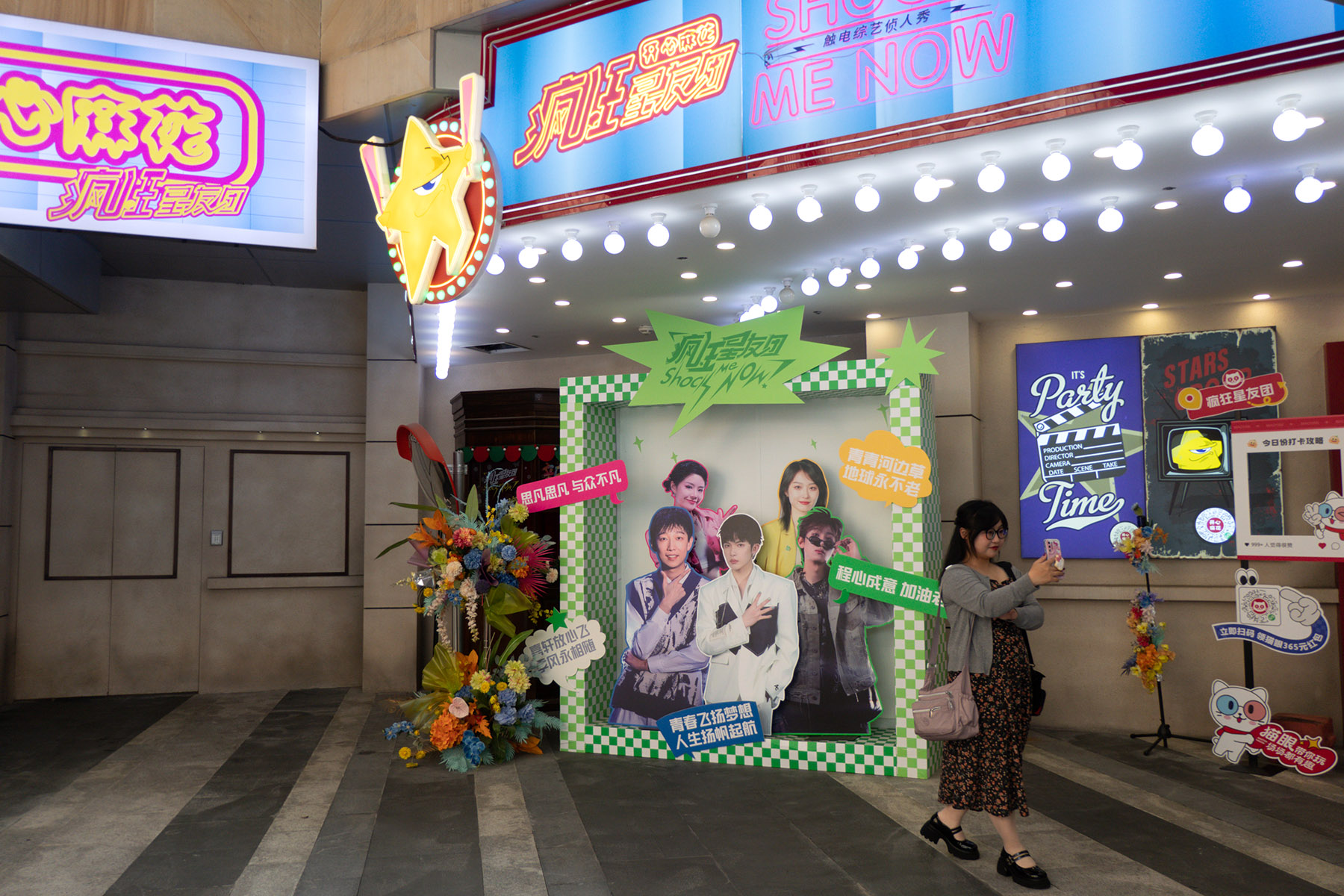
Access all areas
Wen said the company's goal is to build a chain of theaters that will allow people to have a theater experience that is as simple as going to the movies.
Some of the Mahua Fun Age shopping mall theaters stage up to eight shows a week.
"The majority of audiences that go to watch shows at our theaters inside shopping malls go by chance. They see our posters and buy tickets at the door without any plans," she said.
"It helps us expand our fan base and also presents new challenges that we haven't encountered at traditional theaters."
When the company puts on a show at a theater, its only focus is the theatrical productions.
At shopping malls, they try to offer audiences a full experience that ranges from the venue's interior design to services such as food and beverages.
"At the malls, they want something interactive and immersive, much more than what they get at traditional theaters," Wen said.
"For example, audiences are invited to play roles onstage along with our actors and actresses. We also provide them with activities before and after the shows, warming them up and extending their theater experience."
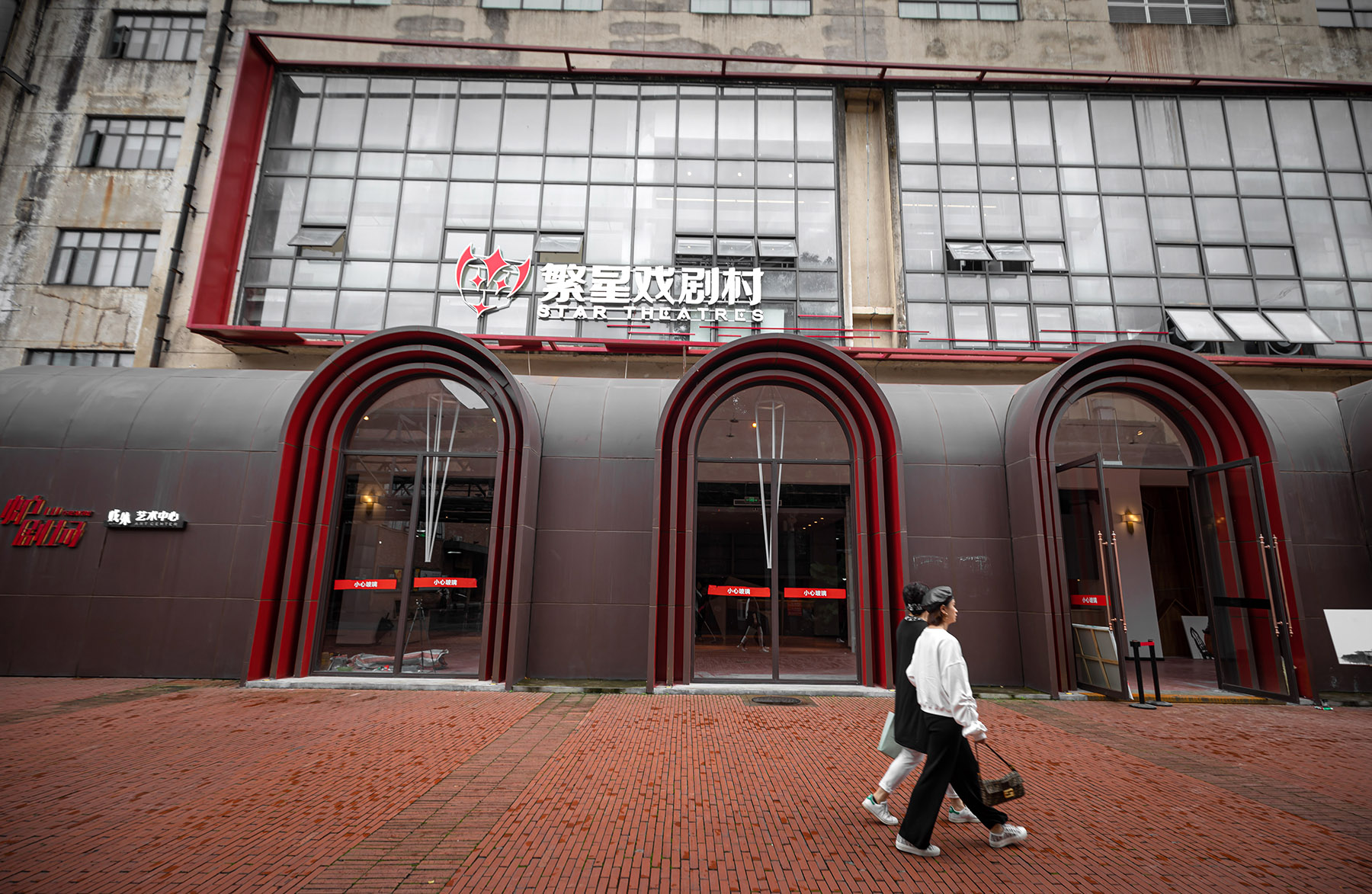
One of the company's hit interactive shows is Shear Madness Salon, a Chinese stage adaptation of the German whodunit by Paul Portner.
In 2021, Mahua Fun Age premiered the comedy at Ruihong Tiandi Hall of the Moon shopping mall in Shanghai's Hongkou district. The play has also been staged in other Chinese cities including Tianjin and Changsha, Hunan province.
Another popular show is Kaixin Liaozhai, or The Crazy Happy Version of Liaozhai — Three Lifetimes, inspired by Qing Dynasty (1644-1911) writer Pu Songling. The comedy combines a classic supernatural tale with contemporary elements, such as rap and everyday life, and is a favorite with young fans.
Unlike a traditional theater experience, which is often serious and formal, the company offers patrons food and beverages during the show.
"People just want to get out there, watch a comedy, and laugh together," Wen said. "When people go to new places, they look for new experiences. Theater is no longer just a place to stage shows, and the relationship between performers and audiences has also changed."
Shopping malls and commercial complexes, which face challenges from online retailers, also need to renovate their spaces to meet the evolving demands of shoppers, Wen said.
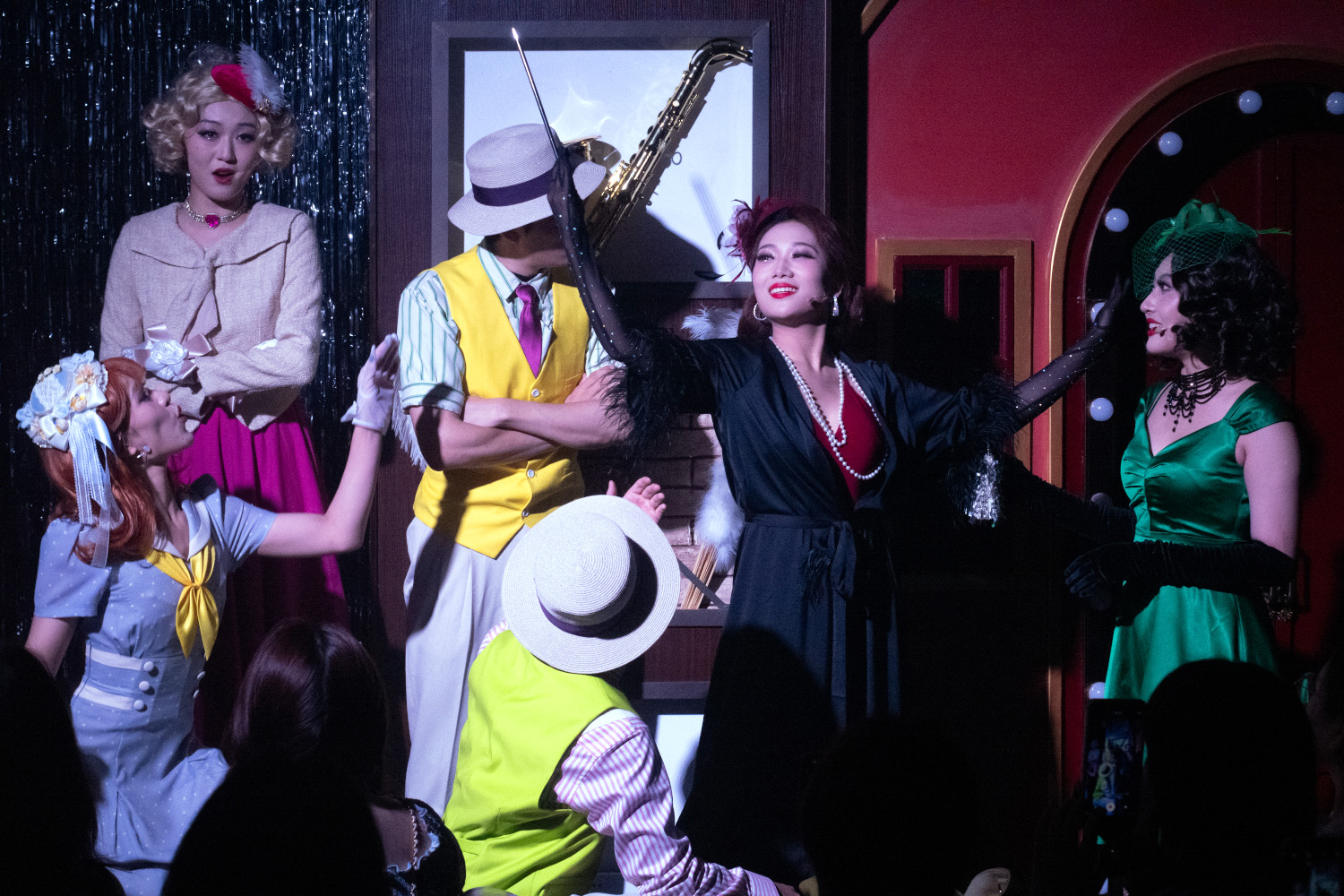
Accidental fans
Pan Peng, a 23-year-old gallery assistant in Beijing, said she and her friends enjoyed a Mahua Fun Age comedy in Beijing's Chaoyang Joy City shopping mall in January.
She said after hanging out and eating dinner, the group saw a poster for the show on the eighth floor of the mall and bought tickets not knowing what to expect.
"The atmosphere was great with performers and audiences interacting frequently," said Pan, who has watched plays by established theater companies such as Beijing People's Art Theatre. "It was quite different from the shows I've seen before."
She said her generation, born after 2000, has increasingly become the "main force of consumption" in the country.
"We want to live in the moment and to have some fun. Going to theaters, just like going to the cinema and to the gym, helps us relieve some pressure from our daily lives and work," she said.
Wen said the company's research showed the average age of the theater audiences is under 35 years. If a star performs in a show, the average audience age can fall below 18.
"These young people want a sense of community. They want to bridge the gap between everyday social media and meeting and shopping in person," she said.
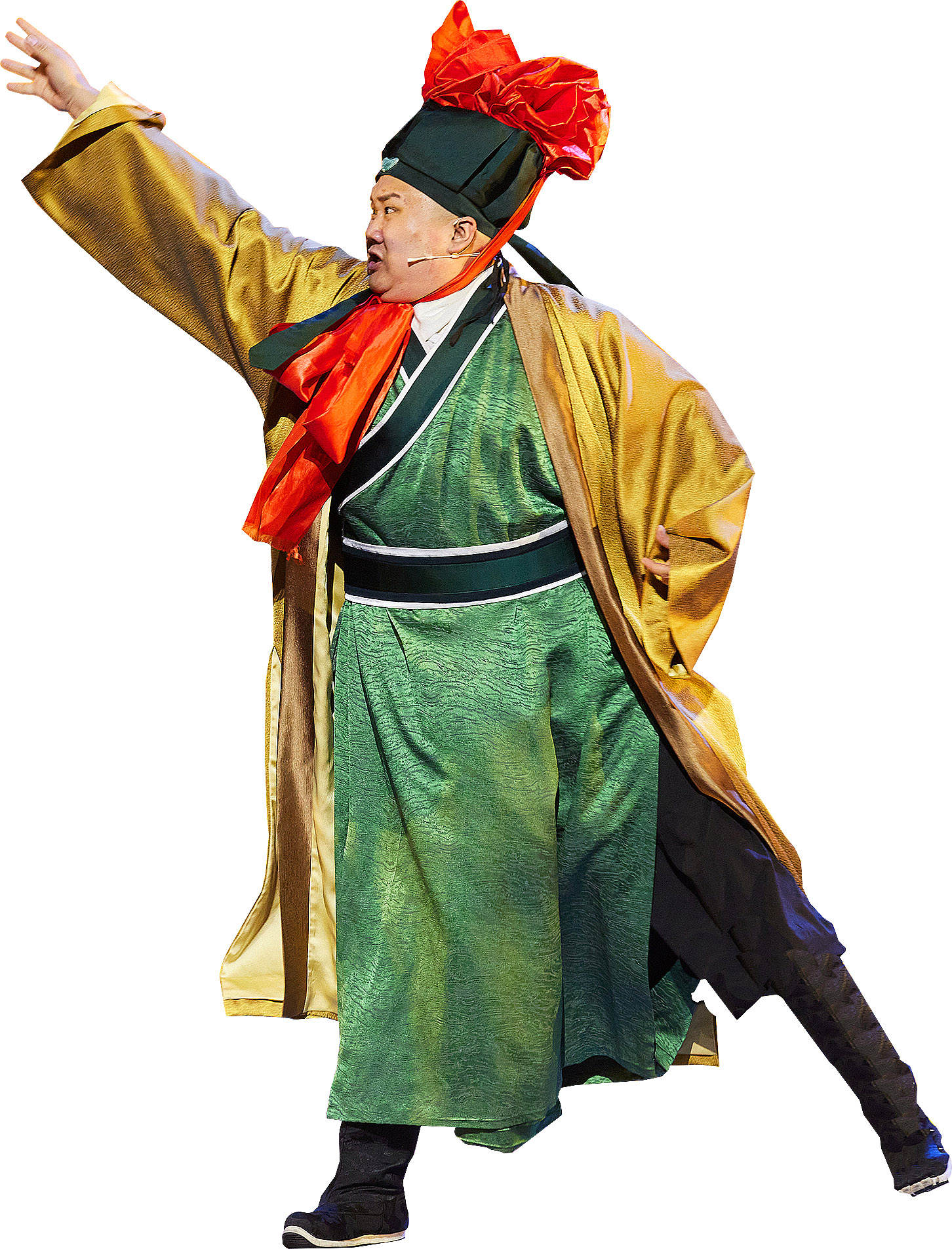
Smaller is better
The total number of live performances staged in the country from Jan 1 to March 31 was about 119,000, a 72 percent year-on-year increase for the quarter, according to a report by the China Association of Performing Arts.
Ticket revenue for the performing arts sector in the quarter was 10.8 billion yuan, while the number of people watching live performances was over 38 million.
"Small theaters have become a rising force in the performing arts market, attracting a large number of consumers," the report said.
Many Chinese cities, from big metropolises like Beijing and Shanghai to smaller new first-tier cities such as Chengdu, Hangzhou, Zhejiang province, and Changsha, Hunan province, are embracing the phenomenon of small theaters, it added.
Star Theaters was one of the first production companies to realize the value of smaller venues.
More than 10 years ago it opened three auditoriums, each with a capacity of about 200, the first such venues in Beijing, which have attracted drama aficionados who enjoy experimental productions.
The company later expanded its reach to Chengdu, opening three theaters at the Eastern Suburb Memory park, a former TV cathode tube factory in Chengdu converted into a cultural park that is home to fashion stores, restaurants, coffee shops and live venues.
The first theater in the park was opened in September 2019.
ALSO READ: Beijing illuminates new winter tourism
Unlike its Beijing counterpart, which is located in a traditional courtyard, each of the theaters in Chengdu has seating capacity for 300 to 500 patrons. Since the theaters were renovated from abandoned factories, the spaces are much bigger and offer an industrial vibe, said Deng Wei, vice-president of Star Theaters.
The Eastern Suburb Memory venues average 80,000 to 10,000 patrons per day on the weekend, with the strong attendance a major motivating factor for the company to open the theaters.
In November last year, Star Theaters premiered in Beijing its latest production, Miss Julie, a Chinese stage adaptation of Swedish dramatist August Strindberg's naturalistic play that was first performed in 1889.
With more than 100 sold-out shows since it opened, Miss Julie was also staged in Chengdu.
"The local audience gave us warm feedback about the play, even better than the feedback from the Beijing audiences. We also made some adjustments to cater to the local audiences in Chengdu, such as the dialect," said Deng.
"Now, one of our theaters in Chengdu is staging a new play featuring distinctive Sichuan elements, such as Sichuan Opera, combined with elements loved by young people, such as rap music. Our target audience is not only local people but also tourists," Deng added.


